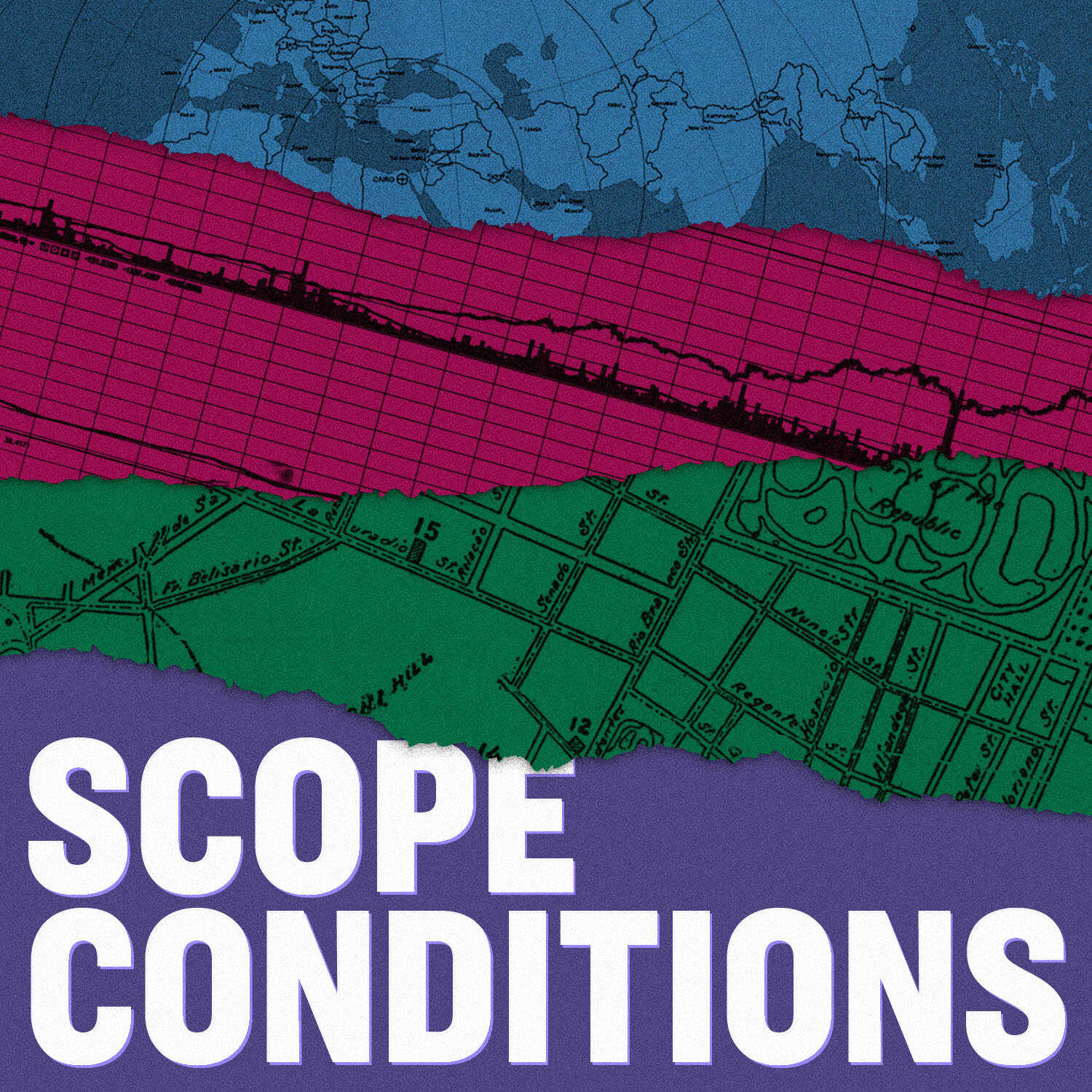SCOPE CONDITIONS PODCAST
Scope Conditions is a podcast featuring cutting-edge research in comparative politics hosted by Alan Jacobs and me. In each episode, we talk with an emerging scholar about their new book or paper, with a particular focus on innovative empirical research covering a wide range of themes and regions of the world. The conversations on Scope Conditions speak to both substance and method: what these scholars have found and how they have found it. You can find it on Spotify, Apple, or wherever you listen to podcasts.
EDITORIAL WRITING
Misperceptions about Migrants’ Political Ideology Drives Rejection. November 2024. Journal of Politics Blog (with Alisha Holland and Margaret E. Peters).
Win-Win integration: Learning from Uganda’s response to South Sudanese refugees. June 2023. VoxDev (with Guy Grossman and Shuning Ge).
Refugees are Brothers and Sisters in Uganda, Strangers in Tanzania. March 2023. Harvard Weatherhead Epicenter.
Priority Theme Spotlight: Research on Displacement, Migration, and Integration. January 2022. EGAP (with Jason Lyall and Beza Tesfaye).
Collecting Panel Survey Data Around an Africa Cup Match Using Facebook. August 2021. Digital Fieldwork (with Leah Rosenzweig).
Kenya and Tanzania: How Sport Affects Nationalism, and Attitudes towards Refugees. May 2021. The Conversation (with Leah Rosenzweig).
Reducing Youth Support for Violence through Training and Cash Transfers in Afghanistan. July 2019. EGAP Brief (with Jason Lyall and Kosuke Imai).
Don't Fear Refugees: Why They Pose Little Threat to National Security. Dec 10, 2015. Foreign Affairs (with Alex Bollfrass and Andrew Shaver).
How to Make Surveys in War Zones Better, and Why This is Important. Jan 6, 2015. The Washington Post Monkey Cage (with Andrew Shaver).
Traumatized Detainees. Jan 16, 2012. New York Times (with Allen S. Keller).
Indefinite Detention: Instrument of Tyranny. Jan 11, 2012. McClatchy News Service (with Allen S. Keller).
Seeking Asylum: Some Lie, but More Are Legitimate. Jul 18, 2011. New York Times (with Shaw Drake).
DIVERSITY AND INCLUSION IN ACADEMIA INITIATIVES
2018 APSA Hackathon Team for Graduate Student Diversity and Inclusion (co-led with Leah Rosenzweig)
What are some ways in which political science departments can create an inclusive and productive climate for all graduate students? The goals of this team are to brainstorm action items for improving graduate student life, to analyze our original climate survey data of 400 current and recent graduate students from political science departments across the country, and to create this website to house all of the resources discussed and visualize the data.
SOFTWARE
rr: Statistical Methods for the Randomized Response Technique:
rr is an R package which enables researchers to conduct multivariate statistical analyses of survey data with randomized response technique items from several designs, including mirrored question, forced question, and unrelated question. This includes regression with the randomized response as the outcome and logistic regression with the randomized response item as a predictor. In addition, tools for conducting power analysis for designing randomized response items are included. The package implements methods described in Blair, Imai, and Zhou (2015) "Design and Analysis of the Randomized Response Technique.” Type install.packages(“rr”) to install in R.
Example using rrreg() to conduct multivariate regression analysis.
data(nigeria)
set.seed(1)
## Define design parameters
p <- 2/3 # probability of answering honestly in Forced Response Design
p1 <- 1/6 # probability of forced 'yes'
p0 <- 1/6 # probability of forced 'no'
## Fit linear regression on the randomized response item of whether respondents had direct contact to armed groups
rr.q1.reg.obj <- rrreg(rr.q1 ~ cov.asset.index + cov.married +
I(cov.age/10) + I((cov.age/10)^2) + cov.education + cov.female,
data = nigeria, p = p, p1 = p1, p0 = p0,
design = "forced-known")
summary(rr.q1.reg.obj)
## Replicates Table 3 in Blair, Imai, and Zhou (2015)

